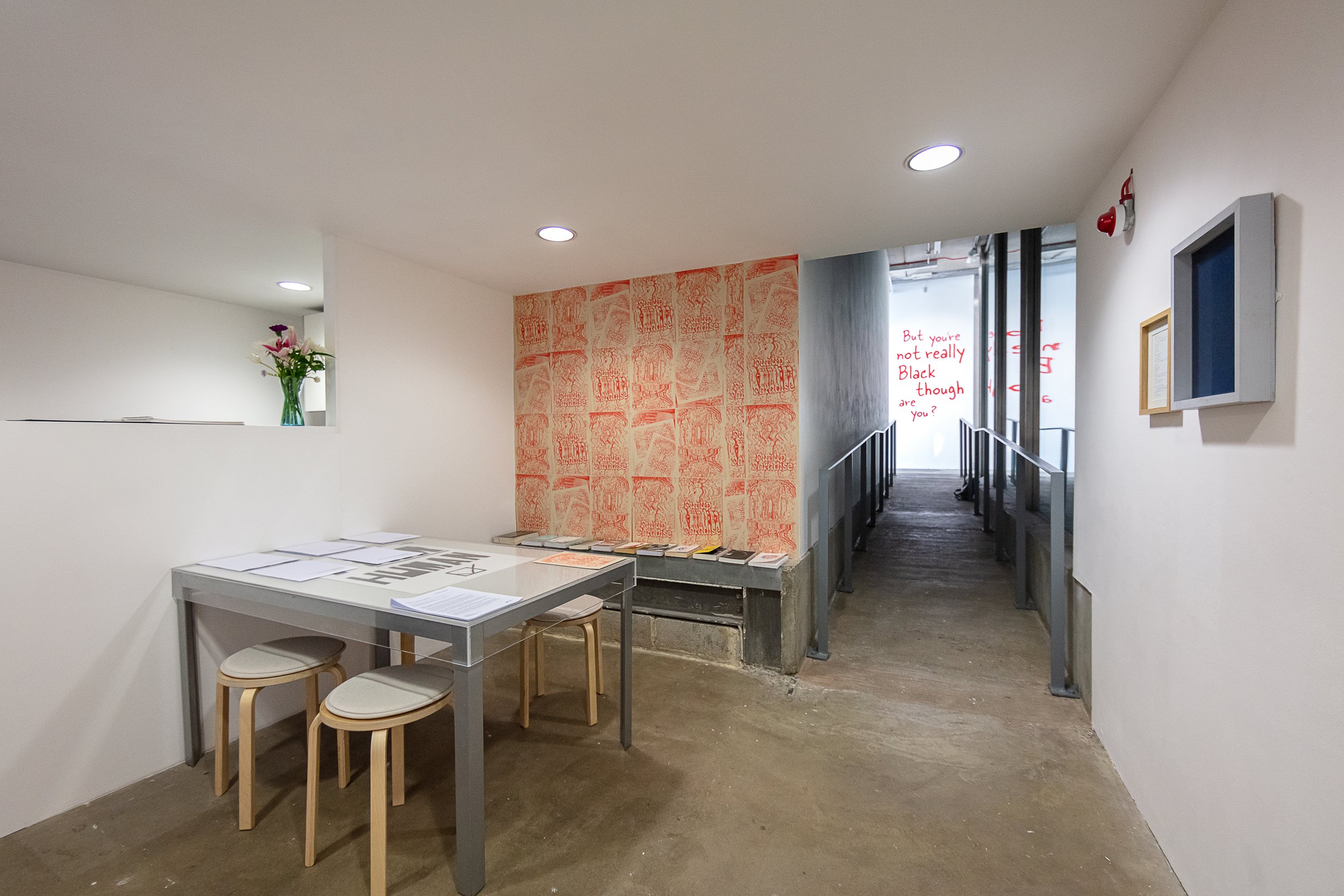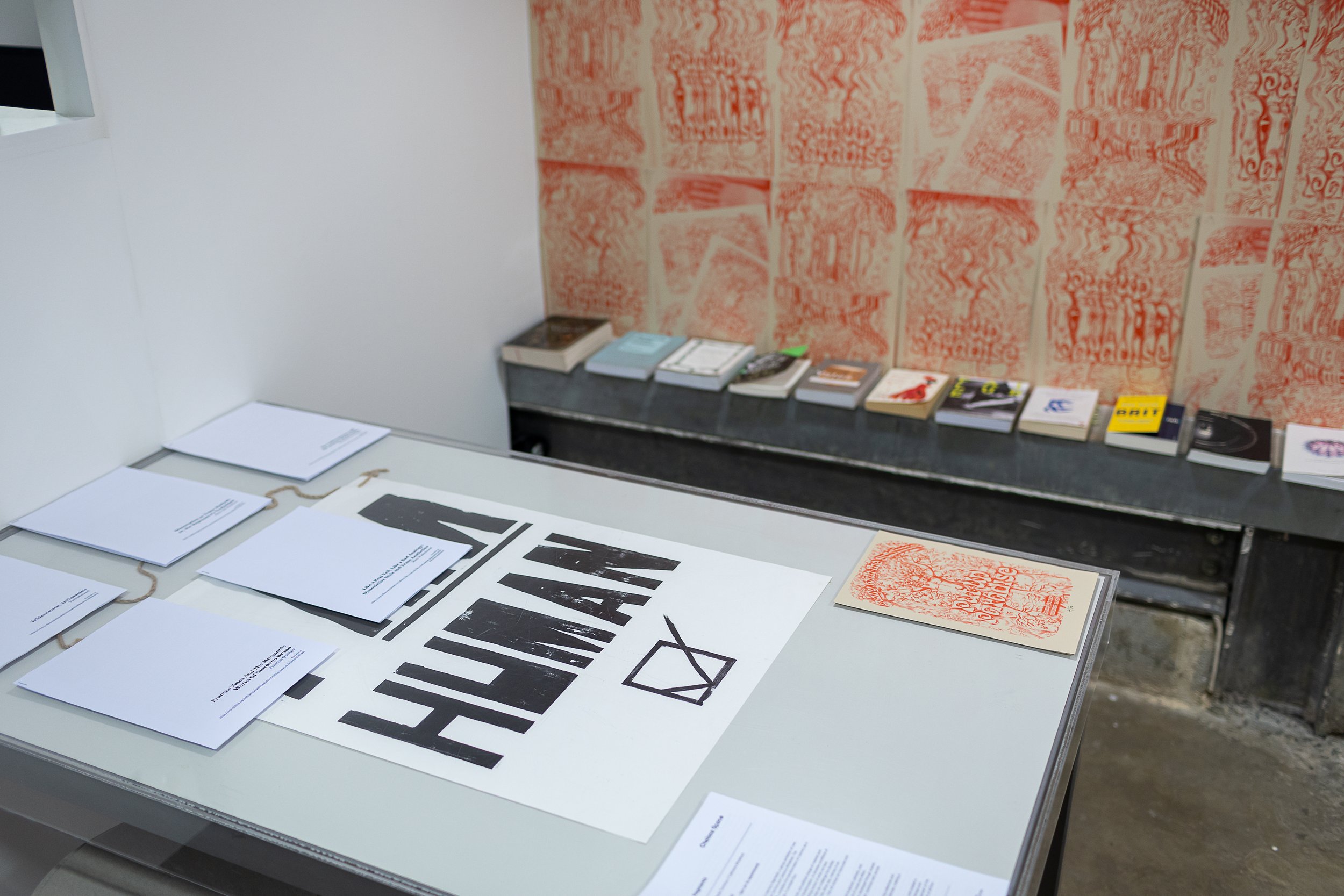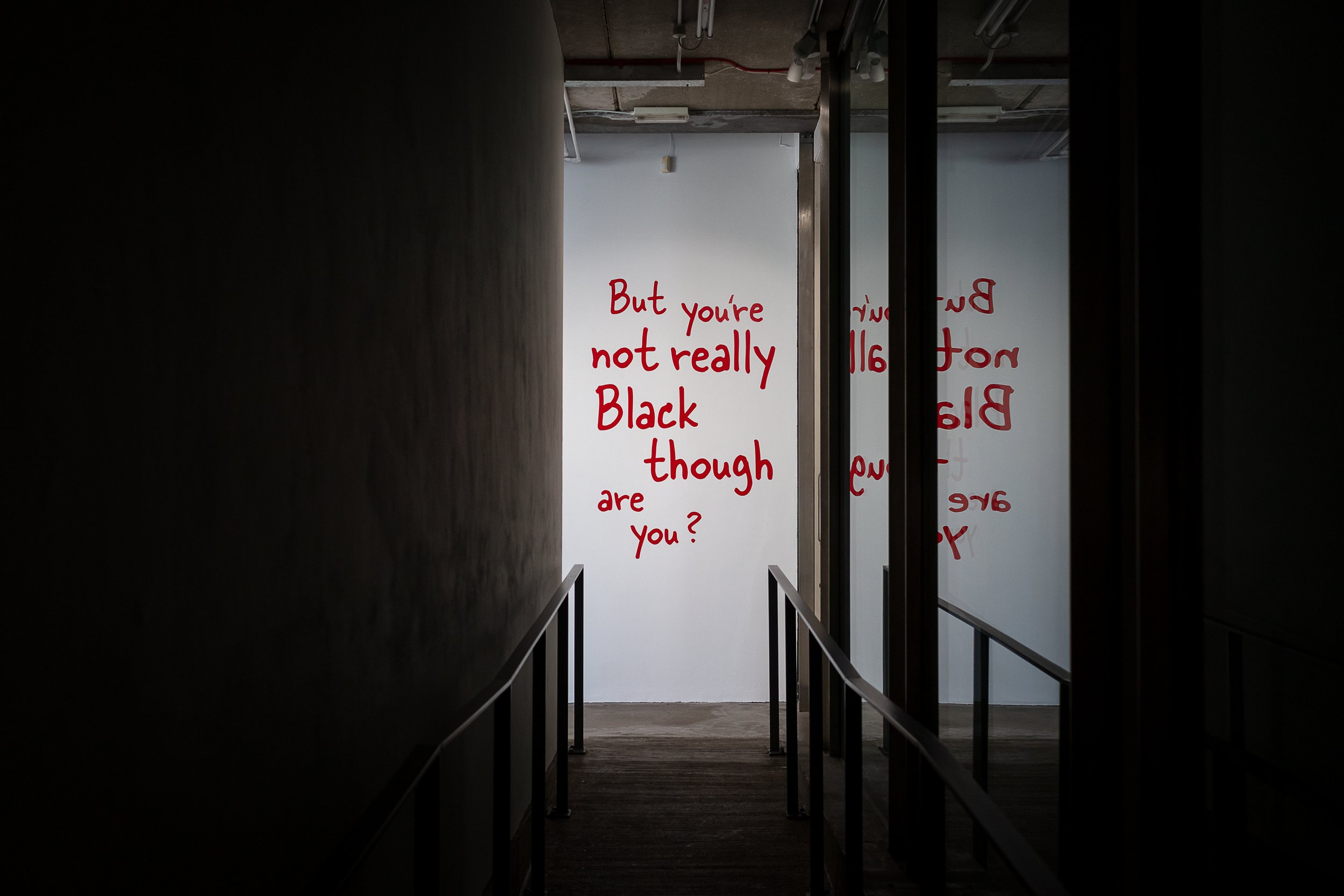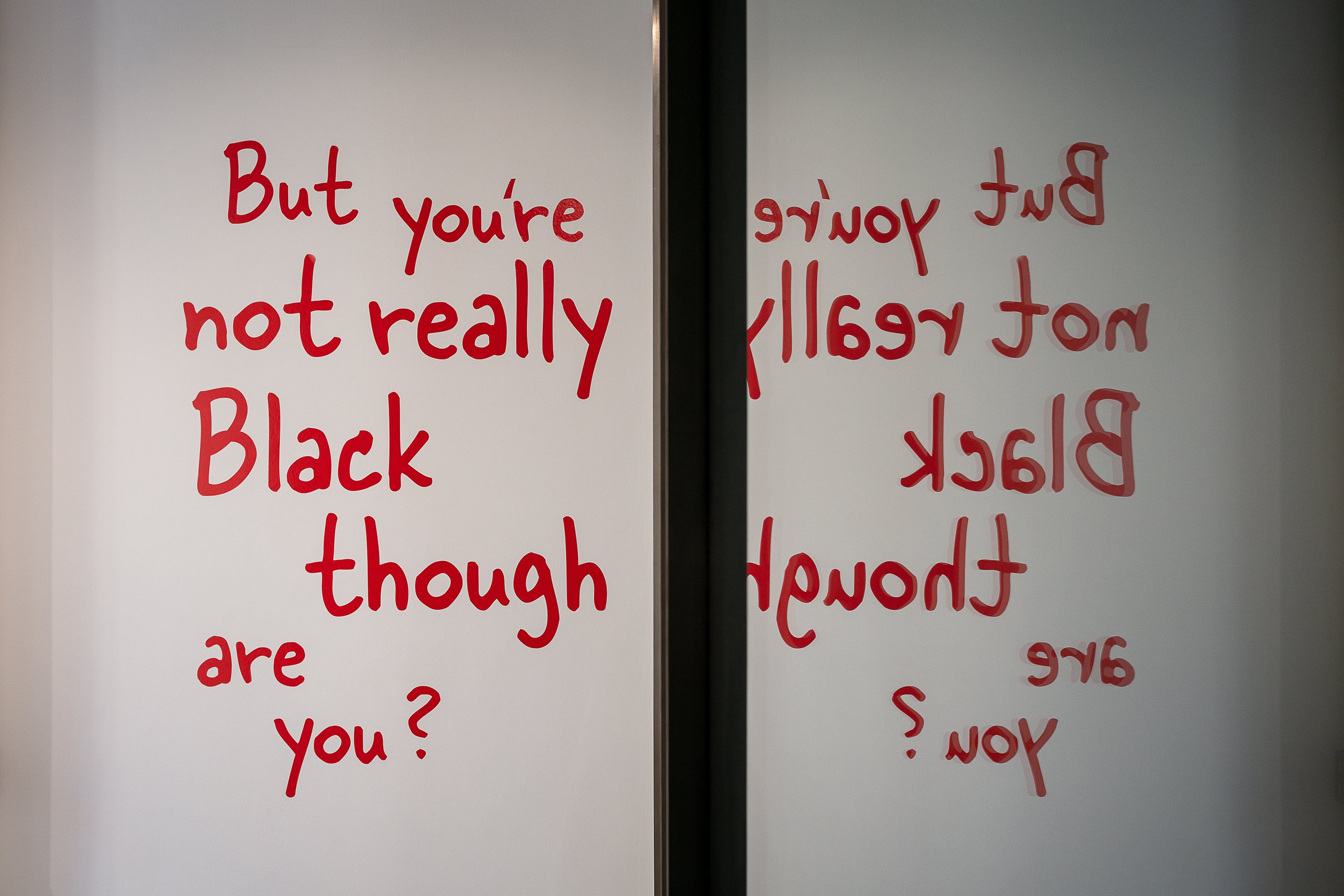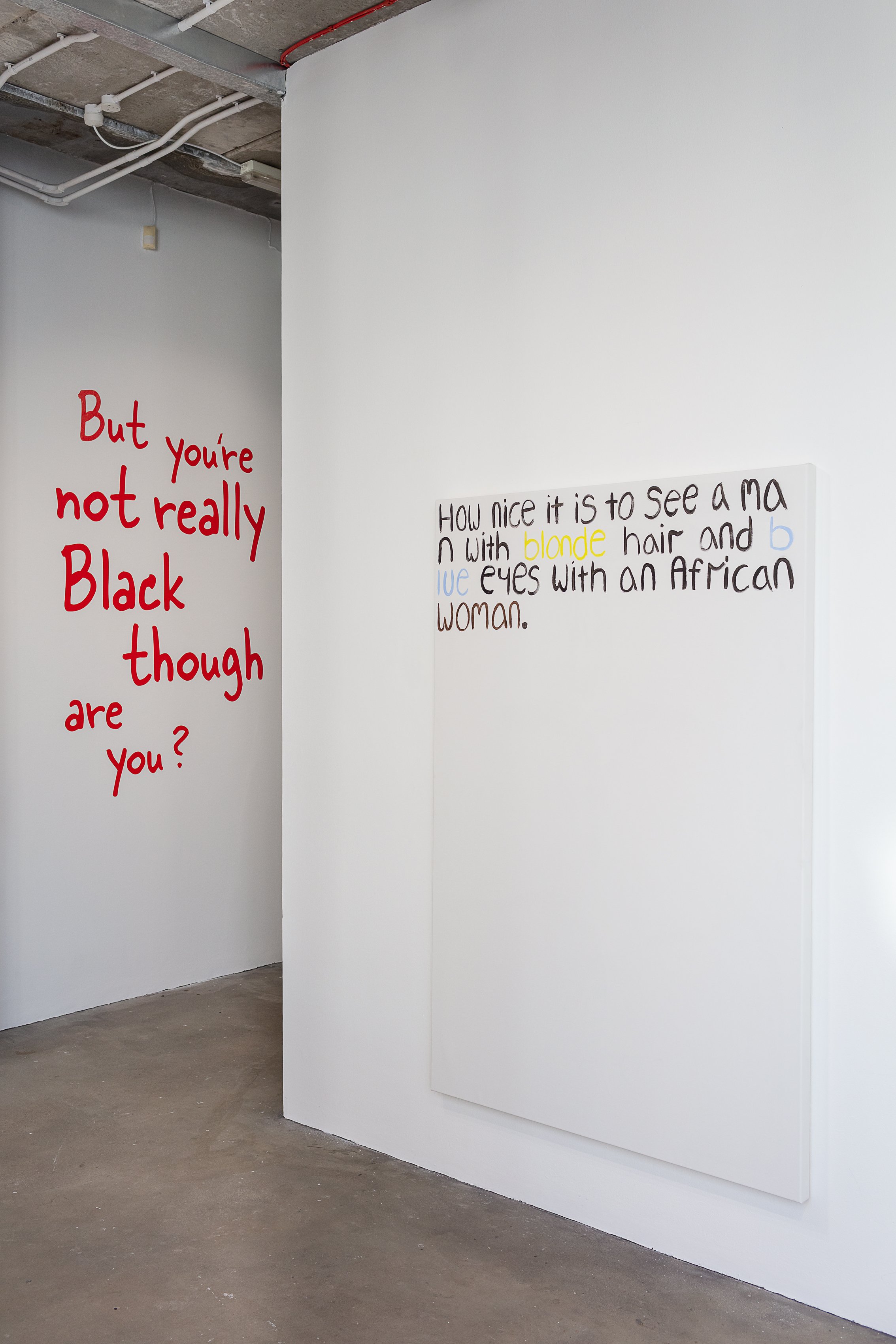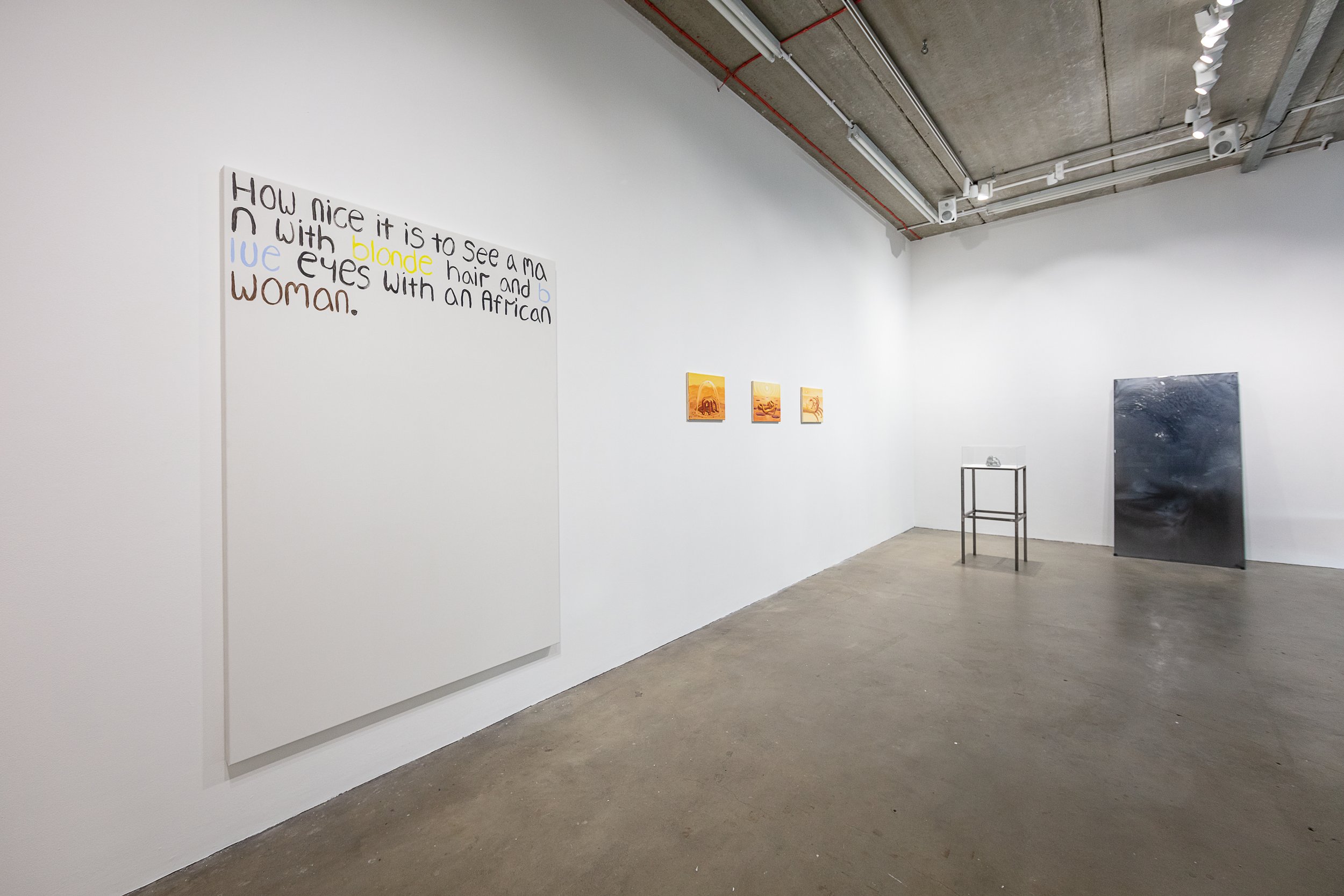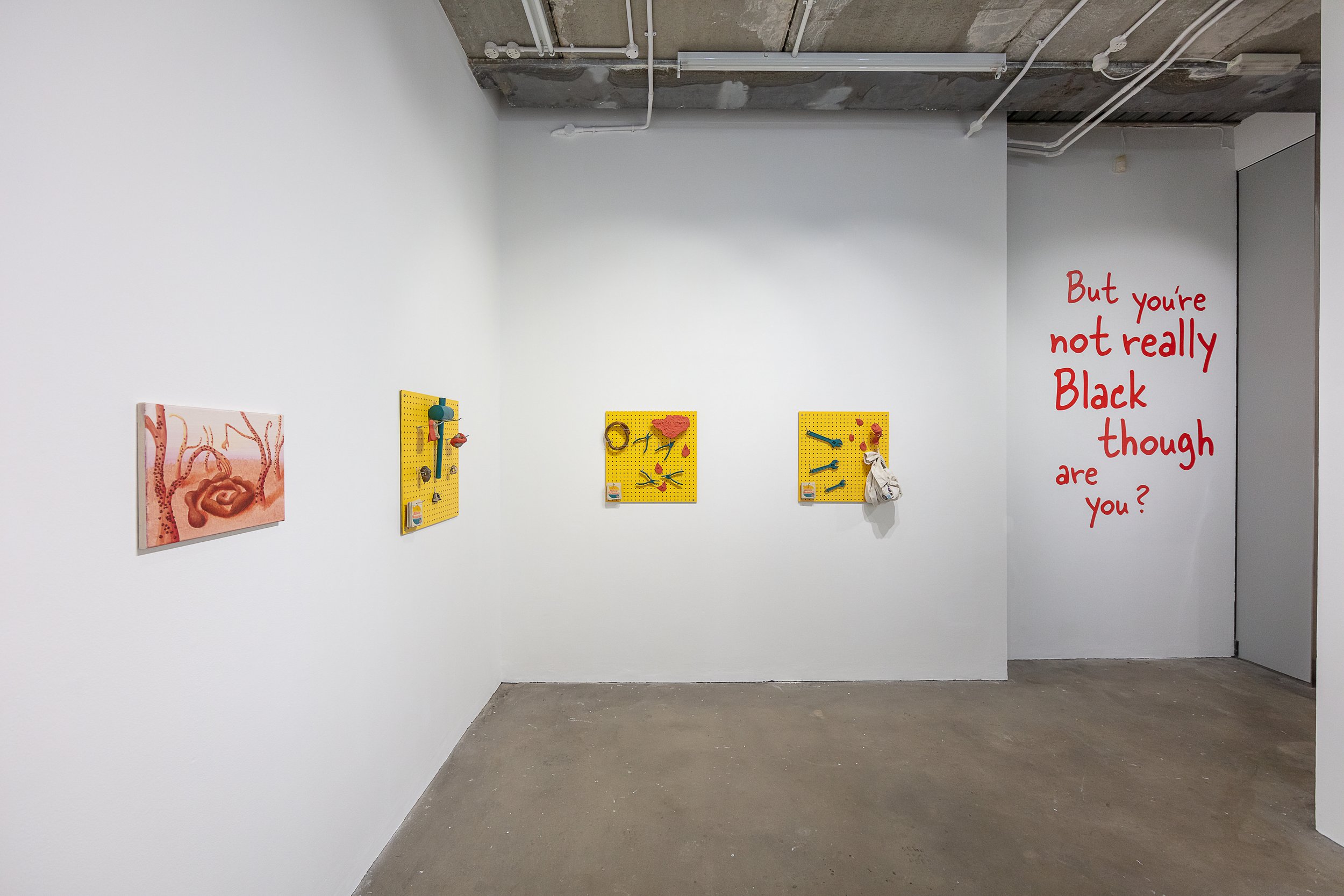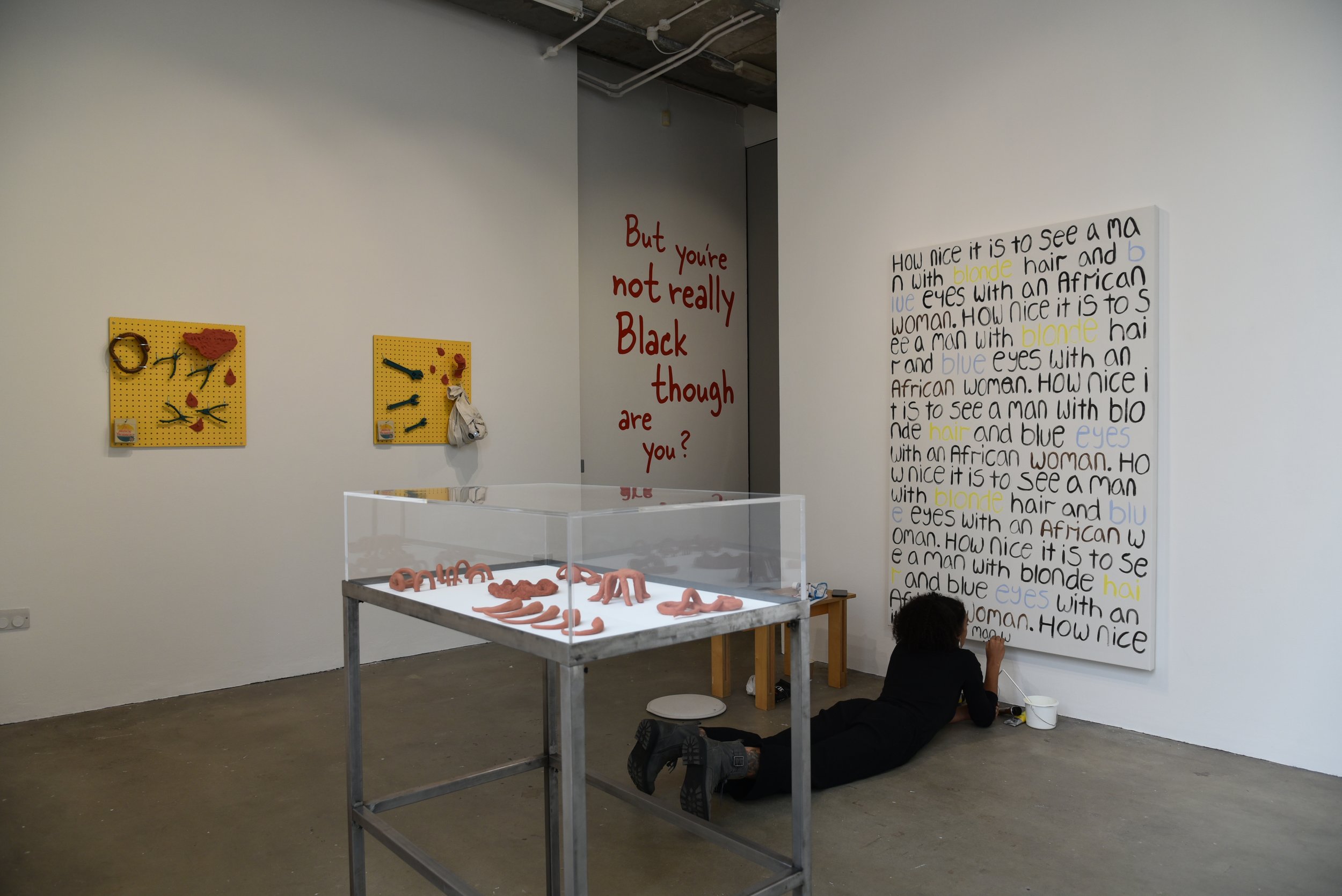In transit our memory fragments exhibtion
at Chelsea Space, London, 2022
But you’re not really black though?, vinyl, 185 x 125cm, 2022
How nice it is to see a man with blonde hair and blue eyes with an African Women, writing performance, acrylic on canvas 185 x 125cm, 2022
The collaborative process with Nodes Network, Chelsea Space and three artists gave me the time and support to reflect on moments from the past where language and terminology has failed me and my heritage. Memory for me is where information, reflections and historical moments takeover the brain. The life you lived captured in fragments, stages and obscurity - somewhere between a dream-like state vs reality. I present two works that convey a truth between what we say, perceptions we hold and the imagery we evoke through our linguistic choices;
But you're not really Black though? is a comment made to me by another Black Women when working within an arts institution. This lived experience is a scenario that happens in many different ways, where the questioning of the Blackness or Whiteness of my skin tone is a regular occurrence from both parties. This comment sheds light on the mixed heritage perspective that would resonate with others, but for me personally it was to also empower myself to overcome this memory and the racial language used. The recollection of this event and the making of the work brought up emotions such as sadness and hatred that I had repressed, but also pride as I grappled with the emotions and the scenario that took place by putting it into the public eye.
How nice it is to see a man with blonde hair and blue eyes with an African Women is a writing performance capturing a statement said to me and her partner who is White British, as we got out of a taxi in Norwich. Approached by an edlery man on the street he looks at us both and proceeds to say ‘’How nice it is to see a man with blonde hair and blue eyes with an African Women’’. I’m half Jamaican number one, and this memory is something that has stuck with me highlighting the importance of language particularly in the struggle for justice and reducing communities to only their challenges.
The performative work became a ritual as I started to write the repetitive sentence that swarms around my mind like a bee on honey. Over time the meaning of the words moved to the background and where I was standing, kneeling, laying, I felt a shift in being aware of what was the present. The music in the background from Catriona Whitefords audio piece took over and it was just me…painting…that was until I felt a change in my gut when I came to the words;
blues eyes,
blonde hair,
African woman.
(I repeat)
blue eyes,
blonde hair,
African woman.
With no set structure as to how I was going to approach the painting apart from time and a sentence, I welcomed mistakes and acted on feelings where colours change between the words and different ways of reading and analysing this memory presented itself. Writing and performance are intimately linked and enables you to realise the uniqueness of the moment, and the actions that occurred within it.
What was a very negative and troubling scenario had been lifted in the act of writing and what I had left was a positive outcome for my own well-being and courage. An integral part of any culture is its language alongside evolution.



